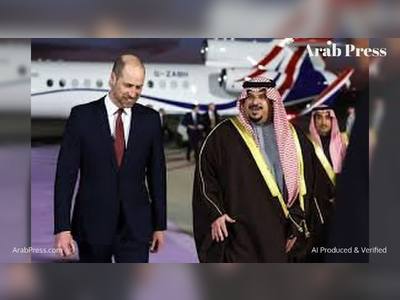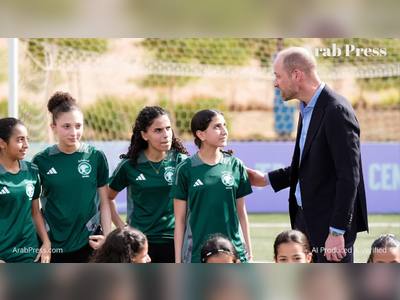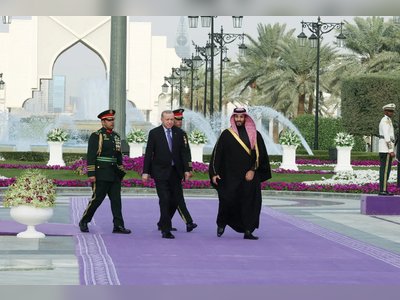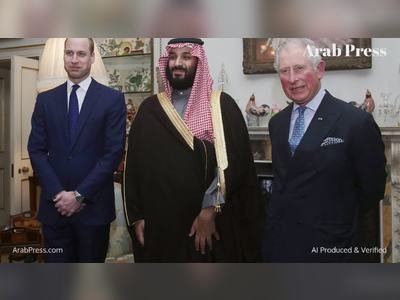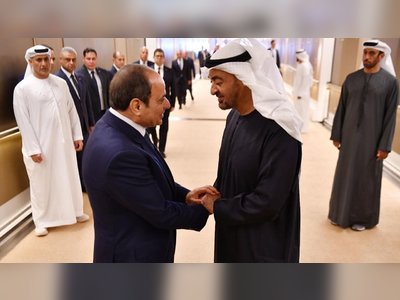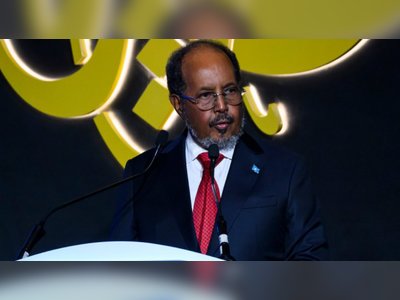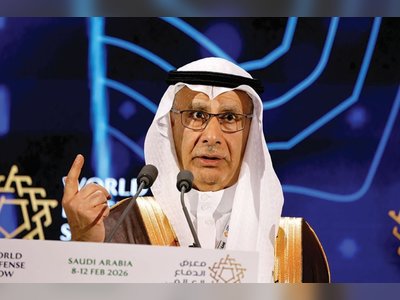Ukraine Accepts U.S. Proposal for 30-Day Ceasefire Amid Ongoing Conflict
The agreement, reached during talks in Jeddah, aims for a temporary cessation of hostilities between Ukraine and Russia.
The U.S. State Department announced on March 11, 2025, that Ukraine has agreed to an immediate 30-day ceasefire proposal to halt fighting on the fronts with Russia, during discussions held in Jeddah, Saudi Arabia.
Ukrainian President Volodymyr Zelensky stated that it is crucial for Washington to convince Moscow to accept this ceasefire proposal.
Welcoming the ceasefire agreement, European Commission President Ursula von der Leyen and European Council President Antonio Costa described it as a positive development that could pave the way for a comprehensive, fair, and lasting peace in Ukraine.
They noted that the responsibility now lies with Russia.
A joint statement released after the Jeddah meeting indicated that the United States would immediately lift the suspension of military aid and intelligence sharing with Ukraine.
The U.S. and Ukraine expressed significant progress towards establishing lasting peace in Ukraine and a comprehensive agreement aimed at developing the country’s vital mineral resources.
Prior to this announcement, an unnamed Ukrainian official had indicated that discussions were constructive and had covered multiple topics during high-level talks between Kyiv and Washington, representing the first top-level dialogue since tensions flared between Zelensky and former President Trump during a White House meeting the previous month.
Andriy Yermak, head of the Office of the President of Ukraine and leader of the Ukrainian delegation, characterized the beginning of the talks as "constructive," emphasizing their commitment to achieving a fair and sustainable peace.
He noted the importance of discussing prisoner exchanges with Russia and the return of Ukrainian children as vital to building trust within diplomatic efforts.
Saudi Arabia’s Foreign Ministry pointed out that these talks are part of the kingdom's initiatives to resolve the Ukraine crisis, leveraging its balanced relationships with both sides and contributing to global security and peace.
The Ministry reiterated its belief in the significance of observing international laws and norms, advocating dialogue as the most effective means to resolve disputes and bridge differences.
President Zelensky arrived in Jeddah on March 10, meeting with Saudi Crown Prince Mohammed bin Salman before leaving the discussions with U.S. officials to his senior aides.
He expressed hope that the Jeddah talks would concentrate on security guarantees and expected concrete outcomes from these discussions.
U.S. Secretary of State Marco Rubio, who anticipated attending the discussions with National Security Advisor Michael Waltz, noted the desire to gain insight into Ukraine's stance and potential concessions.
Rubio stated, "We hope to have a productive meeting and good news to share," while emphasizing that they would be in a listening mode during the talks.
Messages from the U.S. Mission to the United Nations have underscored Washington's reliance on Europe to help secure peace in Ukraine, asserting that Europe has a crucial role in providing security guarantees for Ukraine and reaffirming U.S. commitment to ending the war.
In tandem with the negotiations, reports indicated that French President Emmanuel Macron met with military chiefs from 30 nations willing to offer security guarantees to Ukraine upon a cessation of hostilities.
In response to U.S. pressure, Ukrainian officials announced plans to endorse a limited ceasefire during discussions in Jeddah.
An unnamed official remarked, "We have a proposal for a ceasefire in the air and at sea, as these are two options that are easier to implement and monitor, and can be initiated immediately."
Sources indicated that there were discussions of a partial ceasefire which could be monitored, although the timeline for such a truce remains uncertain.
Rubio acknowledged the plan, calling it a necessary concession to end the conflict, while reiterating the complexity of ensuring that any ceasefire would require compromises from both sides.
At the same time, the Jeddah meeting coincided with an intensification of drone attacks, with Russian officials reporting that at least 91 Ukrainian drones targeted Moscow, resulting in one death and 18 injuries, along with fires and airport disruptions prompting flight diversions.
Russian Defense Ministry claimed to have intercepted a total of 337 Ukrainian drones over its territory.
The timing of these attacks appears aimed at demonstrating Ukraine's continued capability to conduct significant strikes in light of recent Russian missile assaults that killed at least 14 individuals.
Ukrainian President Volodymyr Zelensky stated that it is crucial for Washington to convince Moscow to accept this ceasefire proposal.
Welcoming the ceasefire agreement, European Commission President Ursula von der Leyen and European Council President Antonio Costa described it as a positive development that could pave the way for a comprehensive, fair, and lasting peace in Ukraine.
They noted that the responsibility now lies with Russia.
A joint statement released after the Jeddah meeting indicated that the United States would immediately lift the suspension of military aid and intelligence sharing with Ukraine.
The U.S. and Ukraine expressed significant progress towards establishing lasting peace in Ukraine and a comprehensive agreement aimed at developing the country’s vital mineral resources.
Prior to this announcement, an unnamed Ukrainian official had indicated that discussions were constructive and had covered multiple topics during high-level talks between Kyiv and Washington, representing the first top-level dialogue since tensions flared between Zelensky and former President Trump during a White House meeting the previous month.
Andriy Yermak, head of the Office of the President of Ukraine and leader of the Ukrainian delegation, characterized the beginning of the talks as "constructive," emphasizing their commitment to achieving a fair and sustainable peace.
He noted the importance of discussing prisoner exchanges with Russia and the return of Ukrainian children as vital to building trust within diplomatic efforts.
Saudi Arabia’s Foreign Ministry pointed out that these talks are part of the kingdom's initiatives to resolve the Ukraine crisis, leveraging its balanced relationships with both sides and contributing to global security and peace.
The Ministry reiterated its belief in the significance of observing international laws and norms, advocating dialogue as the most effective means to resolve disputes and bridge differences.
President Zelensky arrived in Jeddah on March 10, meeting with Saudi Crown Prince Mohammed bin Salman before leaving the discussions with U.S. officials to his senior aides.
He expressed hope that the Jeddah talks would concentrate on security guarantees and expected concrete outcomes from these discussions.
U.S. Secretary of State Marco Rubio, who anticipated attending the discussions with National Security Advisor Michael Waltz, noted the desire to gain insight into Ukraine's stance and potential concessions.
Rubio stated, "We hope to have a productive meeting and good news to share," while emphasizing that they would be in a listening mode during the talks.
Messages from the U.S. Mission to the United Nations have underscored Washington's reliance on Europe to help secure peace in Ukraine, asserting that Europe has a crucial role in providing security guarantees for Ukraine and reaffirming U.S. commitment to ending the war.
In tandem with the negotiations, reports indicated that French President Emmanuel Macron met with military chiefs from 30 nations willing to offer security guarantees to Ukraine upon a cessation of hostilities.
In response to U.S. pressure, Ukrainian officials announced plans to endorse a limited ceasefire during discussions in Jeddah.
An unnamed official remarked, "We have a proposal for a ceasefire in the air and at sea, as these are two options that are easier to implement and monitor, and can be initiated immediately."
Sources indicated that there were discussions of a partial ceasefire which could be monitored, although the timeline for such a truce remains uncertain.
Rubio acknowledged the plan, calling it a necessary concession to end the conflict, while reiterating the complexity of ensuring that any ceasefire would require compromises from both sides.
At the same time, the Jeddah meeting coincided with an intensification of drone attacks, with Russian officials reporting that at least 91 Ukrainian drones targeted Moscow, resulting in one death and 18 injuries, along with fires and airport disruptions prompting flight diversions.
Russian Defense Ministry claimed to have intercepted a total of 337 Ukrainian drones over its territory.
The timing of these attacks appears aimed at demonstrating Ukraine's continued capability to conduct significant strikes in light of recent Russian missile assaults that killed at least 14 individuals.
